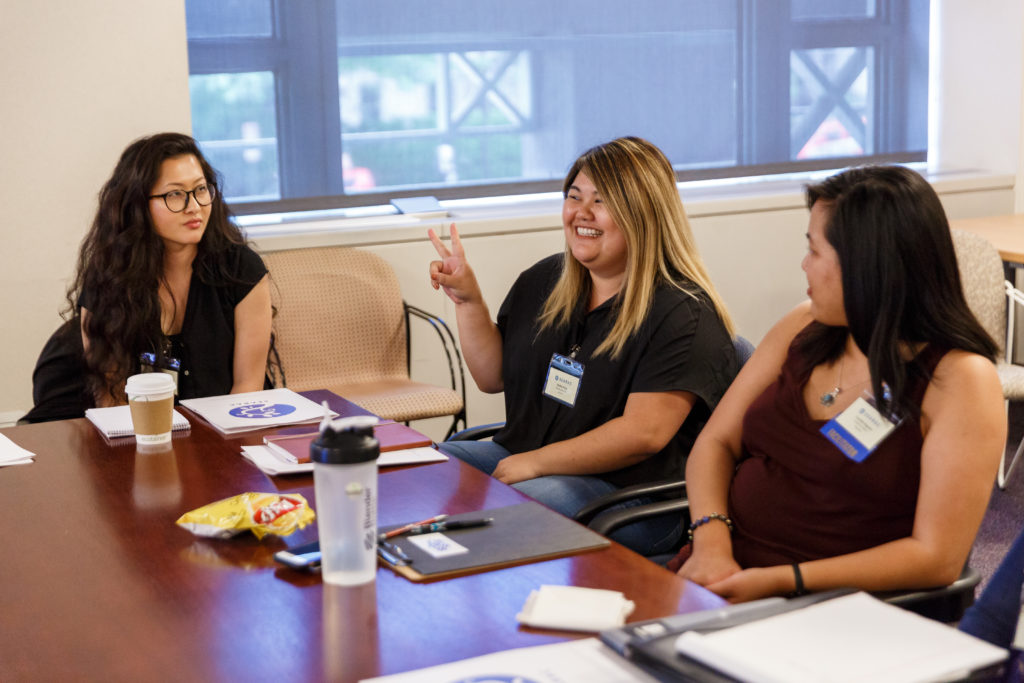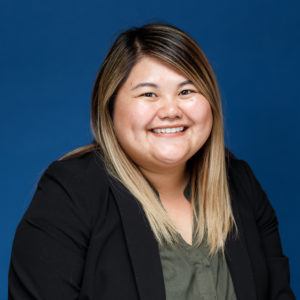November 27, 2019 IN: Community Stories, Our Voices
Voices from LAT 2019: Mailee Yang

What was a moment that inspired you to get involved in health advocacy?
A few years ago, I was experiencing many changes and transitions: entering the workforce post-college graduation, divorce, moving to a new state, etc. My emotions were overwhelmed by the amount of stress and changes I was experiencing so I decided it would be a good idea to start seeing a therapist. Initially, I felt like I had all of the tools to easily find a therapist and get the help I needed. I had insurance coverage through my parents. I had a car. I had a job with a flexible schedule and the means to pay for health services. I had supportive friends who were seeing therapists of their own. I felt comfortable talking about my mental health and have the ability to articulate my needs in English to professionals. This, also, wasn’t the first time I was seeing a therapist so I knew the process well. Even with all of those resources and tools, I still had a really difficult time finding a therapist.
It was through that experience that I started to feel motivated to get involved in health advocacy. I was frustrated that accessing mental health care was so difficult – in spite of all the advantages I had. And even after starting to see a therapist, I felt like I still had to do a lot of educating and explaining on my end to my therapist about Hmong culture to receive the services I needed.
How many generations were we going to have to wait for this to become easier? How many years do we need to wait for us to be considered in this system?
I shared a lot about my upbringing and my experiences growing up as a Hmong woman. My therapist had textbook knowledge about what Hmong people experienced during and after the Vietnam War, but if I wanted to dive into everyday or more taboo topics, I had to be prepared to explain the context and history of it all to really feel like she understood where I was coming from, and for her to understand it herself as well. At the same time, I was learning a lot about Hmong culture and the clan system from community leaders and members myself after never really learning about it in my childhood and living away from a Hmong community for years. My therapist was learning those things from me as I pieced together my experiences with the knowledge I was gaining on why things are the way they are. After listening to me she would then help me find solutions to the issues I was facing, but I couldn’t help but question if her suggestions were real solutions for me as a Hmong woman. Were these answers universal? Would they create a bigger gap between me and my Hmong identity and community? I wasn’t sure because I didn’t know what other Hmong people experienced and what their decisions led to, and she couldn’t tell me from experience either.
It was a cycle of going to my therapist to talk about different issues I was facing and then going to friends afterwards to confirm that her suggestions were applicable to me. Gratefully, even with these barriers and challenges, I was able to develop a great relationship with my therapist and found a lot of healing and growth. It was a life-changing experience to have a professional therapist to help me navigate this time of my life. But I knew that not everyone had this same access and experience due to various reasons, including a lack of cultural competency in our healthcare system. I thought specifically of the generation of family before me and everything that they have experienced that I knew of and didn’t know of, and how even if they had any desire to access mental health services it would be nearly impossible for them to do so. And how it already felt so difficult for me to access this system. How many generations were we going to have to wait for this to become easier? How many years do we need to wait for us to be considered in this system? I decided that I could either just put up with this for the rest of my life or I could try to be active in trying to resolve the issues I was seeing.
That desire led me to meeting a lot of amazing people in the community and being apart of many meaningful experiences, such as SEARAC’s LAT program. I wasn’t sure if I should apply to be part of the program, because I didn’t feel qualified. I knew how I felt emotionally about the healthcare system but felt like I lacked in education and facts around the issues. What reassured me about applying was the thought that I had that I needed to start somewhere. I could let imposter syndrome and fear keep me trapped where I was or I could listen to the courage I had. I still have a lot of doubts and am not sure how to keep moving forward, but an important reminder I had while participating in LAT is that there are so many people who want to support you and guide you.
Participating in LAT reminded me that, in this journey of learning about and fighting for my community’s rights, we are surrounded by people who want to support and guide us.
 Mailee participated in this year’s LAT program on the health track. To help SEARAC continue to support powerful advocates like Mailee, please consider contributing to our “$40 for 40 Years” fundraising campaign here.
Mailee participated in this year’s LAT program on the health track. To help SEARAC continue to support powerful advocates like Mailee, please consider contributing to our “$40 for 40 Years” fundraising campaign here.





